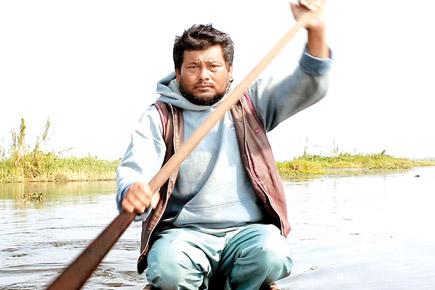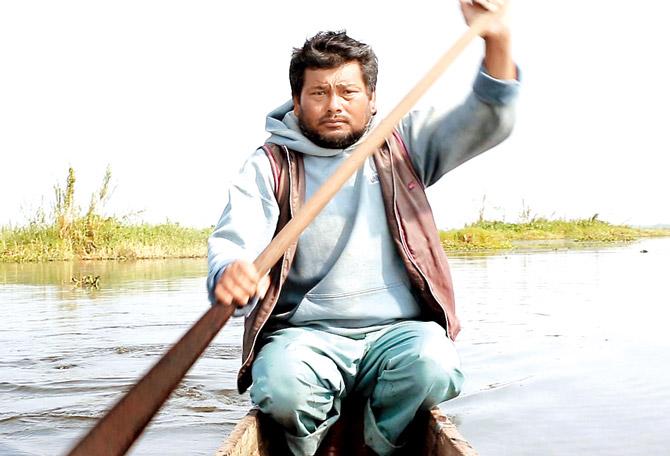It is always a pleasure to return to the Berlin International Film Festival, whose 67th edition runs from February 9-19, 2017


A still from Loktak Lairembee being screened at the Berlinale
ADVERTISEMENT
 It is always a pleasure to return to the Berlin International Film Festival, whose 67th edition runs from February 9-19, 2017. It is quite a whup in your face to go from 32 degrees in Mumbai to -5°C in Berlin, but programmers assure me the colder it is, the more inviting warm cinemas become for the audience. Not that the loyal audience of the Berlinale, as the festival is called, needs any incentive: the festival sells over 3.3 lakh tickets and receives over 20,000 professional visitors.
It is always a pleasure to return to the Berlin International Film Festival, whose 67th edition runs from February 9-19, 2017. It is quite a whup in your face to go from 32 degrees in Mumbai to -5°C in Berlin, but programmers assure me the colder it is, the more inviting warm cinemas become for the audience. Not that the loyal audience of the Berlinale, as the festival is called, needs any incentive: the festival sells over 3.3 lakh tickets and receives over 20,000 professional visitors.
South Asia has a strong presence, with seven films in Berlin this year, and nine South Asians selected in the Berlinale Talents programme. The films include Gurinder Chadha's Viceroy's House, an Indo-UK coproduction (in the Out of Competition section), Amit Masurkar's Newton and Haobam Paban Kumar's Loktak Lairembee (Lady of the Lake; both in the Forum section), Ashish Avikunthak's Aapothkalin Trikalika (The Kali of Emergency) and Bernd Luetzeler's Camera Threat (both in the Forum Expanded section), Amar Kaushik's Aaba (Grandfather, in Generation) and Dechen Roder's Honeygiver Among the Dogs (Bhutan, in Panorama). The South Asians in the Berlinale Talents include, in various film-related specialities, Shubhashish Bhutiani, Paulomi Ghosh, Natasha Mendonca, Archana Phadke, Archana Chidambaranathan and Abhro Banerjee (all from India), Haroon Habib (Pakistan), Rubaiyat Hossain (Bangladesh) and Rajan Kathet (Nepal).
The Berlinale has always been a political festival, aware of, and responding to, political and social challenges, and not merely about films, networking and sales. The festival started in 1951, following World War II, as a "showcase of the free world" in a divided Berlin, and in the 1970s, at the height of the Cold War, deliberately included films from East Bloc nations including USSR, GDR, Hungary, Poland and Czechoslovakia, and even China. In 2011, the Berlinale invited on its international jury Iranian filmmaker Jafar Panahi, who is banned from making films by Iranian authorities and forbidden from travelling: an empty chair was left onstage as a reminder of his absence.
Today, while much of Europe — and the world — turns away refugees, the Berlinale has been actively fostering tolerance and acceptance by welcoming refugees since 2016, and thoughtfully integrating them in various festival activities. Last year, the festival raised 25,000 euros (R17.5 lakh) in donations to support refugee projects. This year, the festival is again seeking donations for Zentrum Uberleben, a Berlin-based organisation that provides integrative support to refugees, especially children and youth. The money the festival raised last year enabled adolescent refugees to participate in a film camp and explore topics, some of which were autobiographical. This year, in the festival's 'movie mentoring' project, volunteers from refugee aid organisations mentor and accompany refugees to Berlinale film screenings to promote cultural exchange.
In collaboration with BBZ, another organisation working with refugees and migrants, the festival is inviting 20 refugees as 'guest trainees', looking at the behind-the-scenes of the festival. The Generation section's 11-year-old school programme, in which school students see and discuss films, and do assignments on them, includes, since 2016, "welcome classes" — introductory German language classes for refugees.
It would be wonderful if Indian film festivals took a cue from the Berlinale and responded, for example, to Bangladeshi refugees, or Rohingyas persecuted in Myanmar, or closer home, Dalits, Muslims and other minorities who are being persecuted, and help them feel part of our society. A lot of cynics will laugh it off. The point is, the Berlin film festival takes life seriously. That, and hope.'
Meenakshi Shedde is South Asia Consultant to the Berlin Film Festival, award-winning critic, curator to festivals worldwide and journalist. Reach her at meenakshishedde@gmail.com.
 Subscribe today by clicking the link and stay updated with the latest news!" Click here!
Subscribe today by clicking the link and stay updated with the latest news!" Click here!






